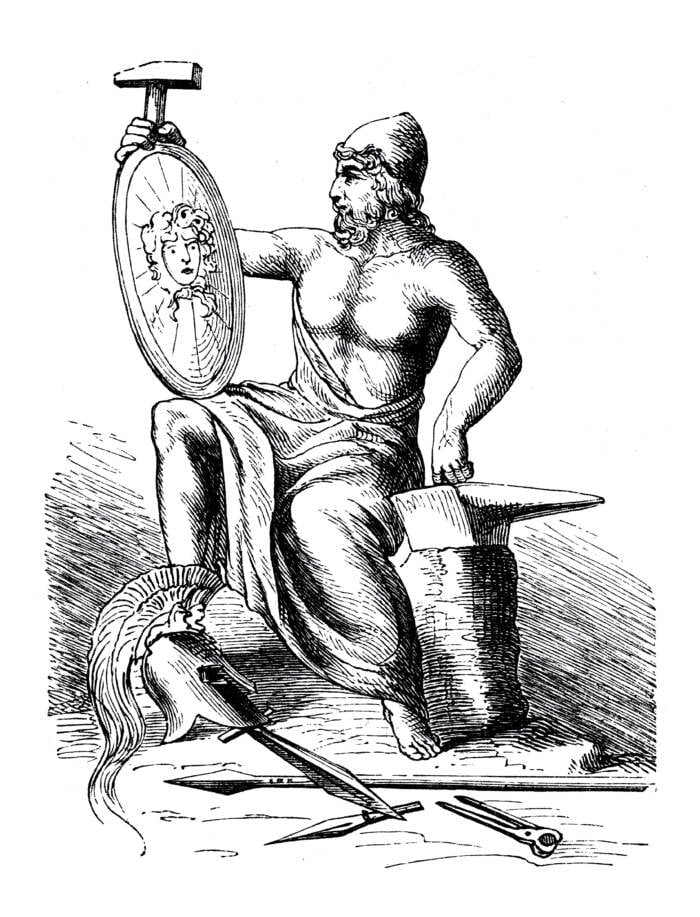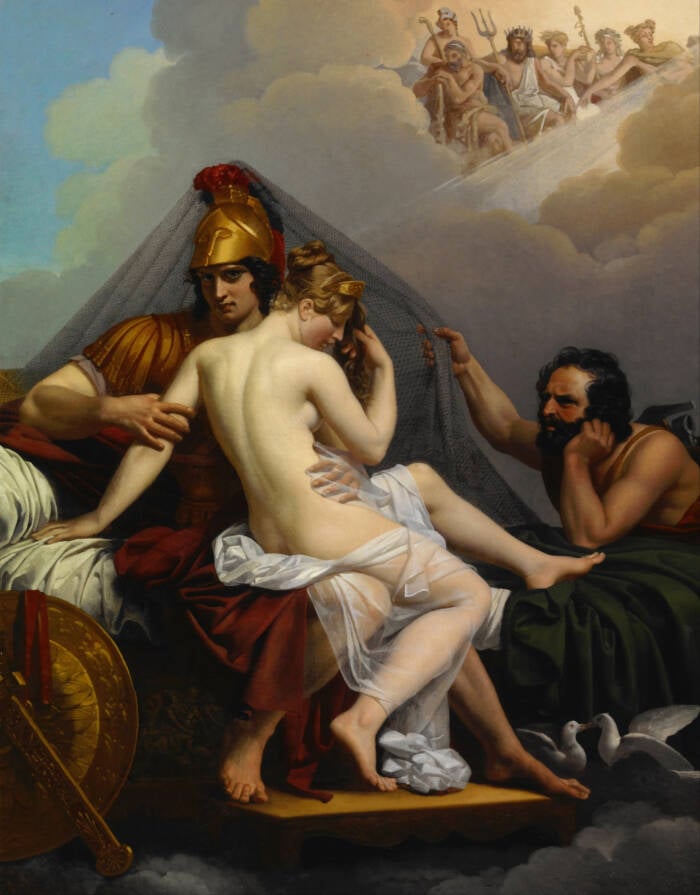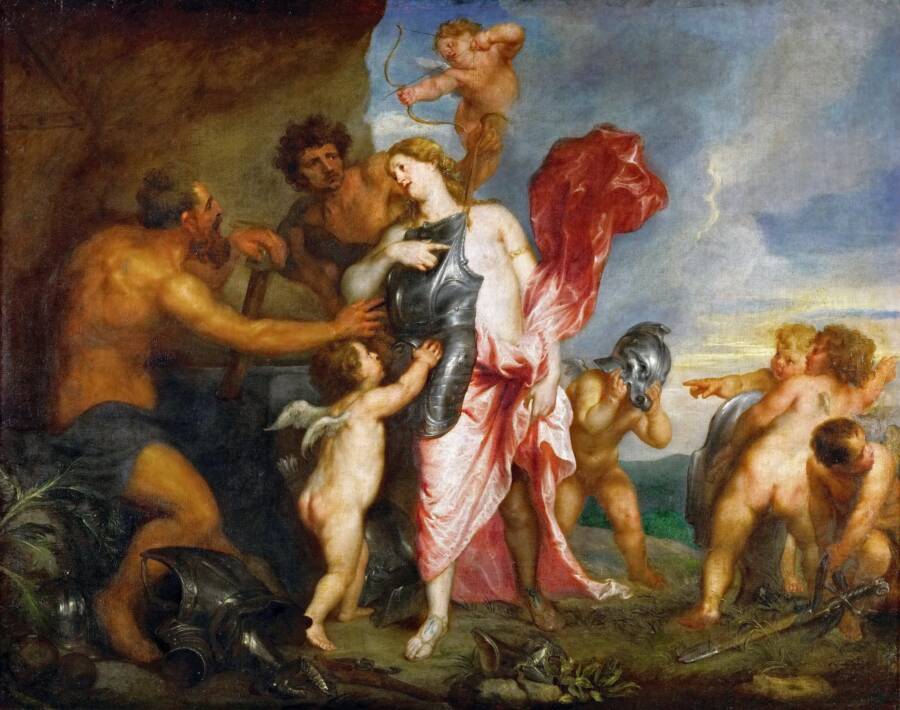Ancient Greek Gods: Hephaestus, The Fire Deity

bilwissedition Ltd. & Co. KG/Alamy Stock PhotoHephaestus, known to the Romans as Vulcan, one of the Greek goddesses of the Olympian pantheon, and the god of the forge and metalworking.
Hephaestus, the deity of fire, craftsmanship, and metallurgy, served as the artisan of the Greek gods.
Born to Hera, and in some myths, to both Hera and Zeus, Hephaestus’ was born deformed, and as such he was rejected and cast from Mount Olympus, falling for an entire day before landing in the sea where he was taken in and raised by the sea nymphs.
Despite this harsh beginning, Hephaestus’ skill as a craftsman and blacksmith was unparalleled. He created some of the most famous artifacts in Greek mythology, including the armor of Achilles, the girdle of Aphrodite, and the shield of Heracles.
His workshop was believed to be located under a volcano, and with the assistance of the Cyclopes, he forged weapons and tools that bestowed power and protection upon gods and heroes alike.

Public DomainMars and Venus Surprised by Vulcan by Alexandre Charles Guillemot, 1827.
Hephaestus was likewise known among the 12 Olympian gods for his cleverness and ability to use his skills for intricate plots and revenge. One of the most well-known stories of his ingenuity is his response to the affair between his wife, Aphrodite, and Ares. Hephaestus crafted a net so fine yet strong that it was invisible to the naked eye. He used this net to trap the adulterous pair in bed, exposing them to the ridicule of the other Greek gods for retribution.
Despite his physical imperfections, Hephaestus was depicted as being kind-hearted and peace-loving, often serving as a mediator among the other 12 Olympian gods. His nature and skills endeared him to the people of Athens, where he was venerated alongside Athena. He was particularly honored at the Hephaesteia, a festival celebrated with a significant amount of craftsmanship and invention, also featuring the torch race known as the Lampadephoria as a central event.

Public DomainThetis Receiving the Weapons of Achilles from Hephaestus by Anthony van Dyck, 1630–1632.
Though not worshipped as widely as other Greek gods, especially the 12 Olympians, Hephaestus was still held in high regard, and various temples and sacred sites were dedicated to him. The Temple of Hephaestus in Athens, for example, is still remarkably well-preserved and served as a center for his worship. The island of Lemnos, where Hephaestus was believed to have landed after his fall from Olympus, also housed a sanctuary to him.





